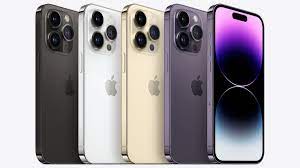As tensions between the U.S. and China build, Apple has lost over $200 billion in market capitalization over the past few days. This week, multiple media outlets have reported that Beijing has singled out the iPhone maker.
As a result of allegations that Beijing has ordered an iPhone ban for Chinese state personnel, Apple shares dropped 3% on Thursday and are now down more than 5% for the week.
The Wall Street Journal was the first to disclose the restriction, citing unnamed sources who said that China has instructed officials in core government departments not to use iPhones or other foreign-branded phones. The Financial Times reported six anonymous sources from government organizations and state-owned businesses, including a hospital and a nuclear technology company, who claimed they had been ordered to stop using Apple phones. The outlets said that the ban expands on earlier limitations on using an iPhone for work.
Beijing wants to rely less on American technology, but this ban hurts Apple because China is its biggest international market and generates about 20% of its revenue, according to Victoria Scholar, head of investment at Interactive Investor, a U.K. investment platform.
Chinese Foreign Ministry spokesman Mao Ning declined to directly address the ban when questioned about it during a daily briefing in Beijing. Instead, she simply stated that “products and services from any country are welcome to enter the Chinese market as long as they comply with Chinese laws and regulations.”
President Joe Biden signed an executive order early last month to impose limits and rules on American high-tech investment in China, reflecting the escalating competitiveness between the two greatest economies in the world. Tensions between the U.S. and China have been building.
Biden will use the annual G20 summit as an opportunity to highlight a proposal for developing and middle-income countries that would increase the lending power of the World Bank and International Monetary Fund by about $200 billion, according to White House officials. Biden left Thursday evening for New Delhi.
Biden wants to make it clear that China is not a better economic or security partner than the United States and its like-minded allies.
The alleged iPhone ban comes at a horrible time for Apple, which is preparing for the introduction of its newest product on Tuesday, September 12, when it’s anticipated to introduce its newest smartphone, the iPhone 15.
No information is provided in a teaser video for the event’s webcast, titled “Wonderlust,” which has been put on YouTube. There are rumors circulating that the iPhone will undergo significant modifications, including a transfer from Apple’s Lightning connector to the USB-C plug that competitors are beginning to use, in part as a result of a European Union directive.
Apple is also threatened by Huawei a major player in Chinese technology, which just unveiled the Mate 60 Pro, its newest flagship model.
The device, which has been selling well in China, apparently has the power and speed to compete with the iPhone. Although Huawei has kept a low profile over the product, its capabilities have sparked worries that China may have been able to get around U.S. restrictions on Huawei that prevent it from getting high-tech components like cutting-edge processing chips, which effectively killed the company’s smartphone industry.

















